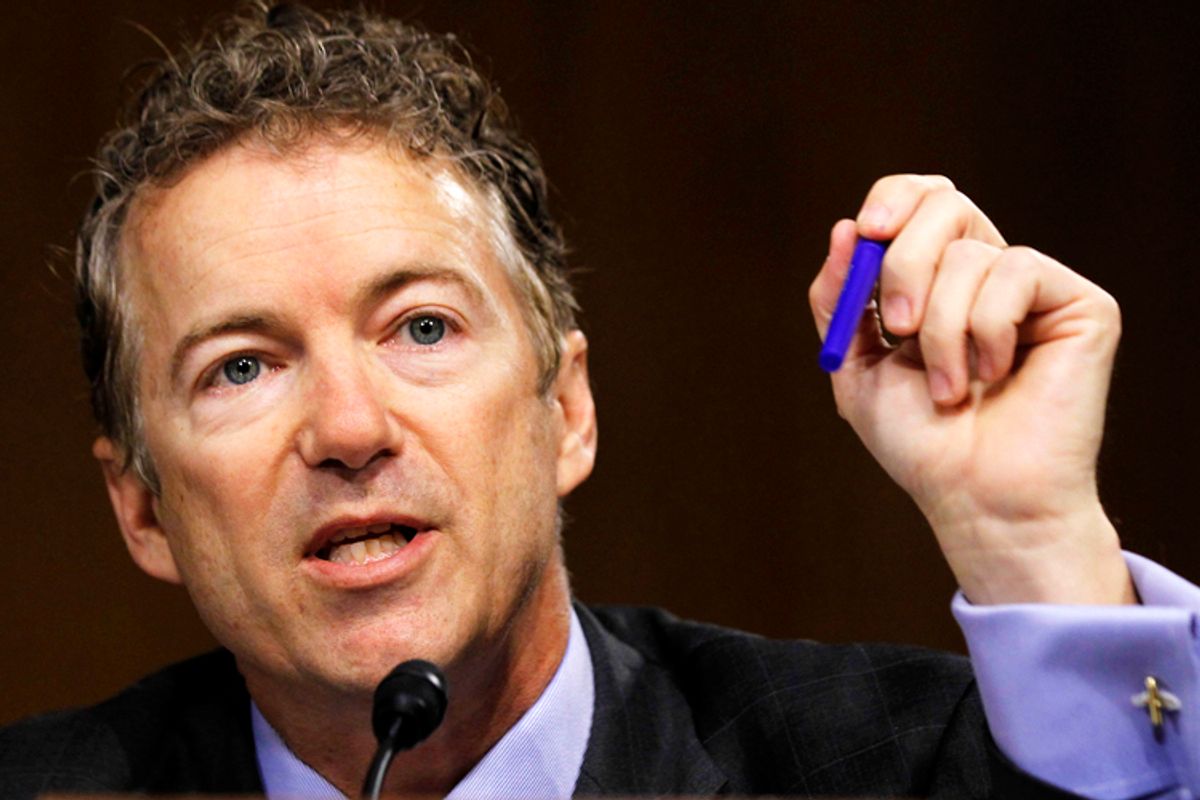If your ideas are under attack, it might be because they're so good and persuasive that the interests they challenge are scared.
That's how Conn Carroll of the Washington Examiner interprets cross ideological criticism of "libertarian populism" -- a nebulous, nearly oxymoronic term adopted by conservative intellectuals who want to build a constituency for their beliefs by placing select and widely shared grievances with government at the center of their appeals to the masses.
Thus we hear a lot from libertarian populists about related issues like corporate welfare, special interest tax loopholes, incumbent rent-seeking and so on. The pitch is that these phenomena tend to disadvantage the poor and middle class, and that since government creates these problems, shrinking government would ipso facto benefit struggling people.
It's a clever pitch, and I understand why its advocates think it could catch on. But nobody should mistake liberal and conservative critiques of libertarian populism for defensiveness. I can only speak for myself, but I assume others would agree that libertarian populism attracts so much attention from critics not because it's a winning ideological agenda but because it's a swindle.
There's actually nothing new here. Libertarianism™ has always benefited from the fact that some of its precepts appeal to strange bedfellows. To the extent that pot legalization and sexual freedom are defined as libertarian ideas, a lot of young people will describe themselves as libertarians, even if they might more accurately be called libertines.
Libertarian populism is designed to replicate this phenomenon at a more elite level. So it's no coincidence that its success likewise depends on saying nothing about "all the other stuff" -- or more specifically, what to do with the hundreds of billions of dollars libertarian populists want to cut from government, supposedly in service of leveling the playing field for the little guys.
Silence is supposed to be a feature, not a bug. If the controversial stuff isn't on the agenda, maybe people won't notice the gaping hole in the libertarian populist governing platform. It also means critics have to make educated assumptions about what libertarian populists really believe about fiscal policy, and that allows them to accuse critics of bad faith. But that's too clever by half. And I think many libertarian populism critics are motivated by the fact that they don't like being told they don't know shit from Shinola.
Libertarianism didn't become a well-financed political movement because it has a large constituency, but because libertarian elites provide the valuable service of promoting respectable-sounding intellectual arguments for regressive fiscal policy. If libertarian populists didn't believe that stuff too, they'd just call themselves "populists." (The corollary here is that if they didn't believe in anti-populist fiscal policy, they wouldn't be so reticent about it -- populist fiscal policy is popular!)
But even if we bracket issues like taxes and spending for now, the game can only go on for so long. These fiscal policy questions overwhelm the totality of the platform libertarian populists are willing to discuss. It certainly overwhelms pet issues like the wisdom of the export-import bank, or whether it's appropriate for the federal government to operate a loan guarantee program like the one that invested in Solyndra. And if libertarian populism ever gains public traction, silence on these issues will become unsustainable.
And then, like libertarian-minded Republican Ron Paul, they'll have to get specific.
"My plan has a 17 percent flat tax with very few deductions, and it would leave $600 billion in the economy," Paul told Bloomberg/Businessweek's Josh Green. "But it would work better than a government stimulus because of the Milton Friedman proposition that nobody spends somebody else’s money as wisely as they spend their own. I think you’d have a boom like you’ve never seen in this country." Then there was this exchange:
Who would your ideal Fed chairman be?
Hayek would be good, but he’s deceased.Nondead Fed chairman.
Friedman would probably be pretty good, too, and he’s not an Austrian, but he would be better than what we have.Dead, too.
Yeah. Let’s just go with dead, because then you probably really wouldn’t have much of a functioning Federal Reserve.
Carroll, by complete coincidence, leaves Paul at arm's length. "The term libertarian populism is still being defined, and while Sen. Rand Paul, R-Ky., is often associated with the term, he neither labels himself as such or even uses the phrase," he writes.
Considering the things Paul both believes and commits to, Carroll probably wants to keep it that way.

Shares